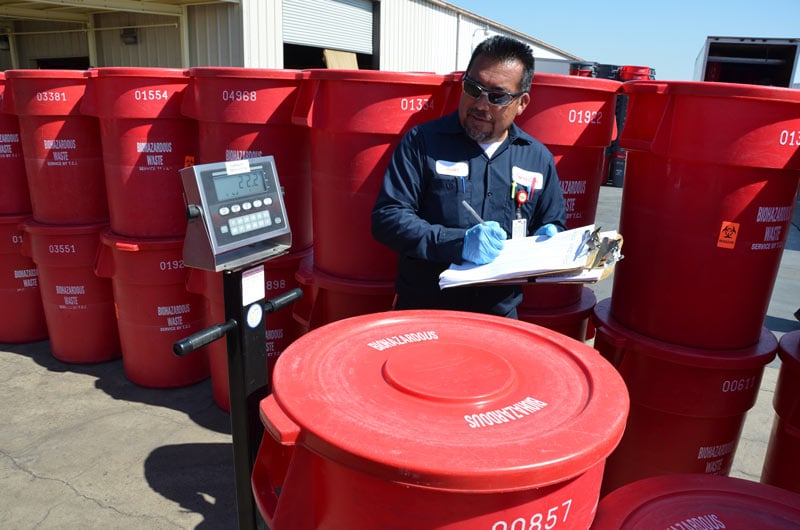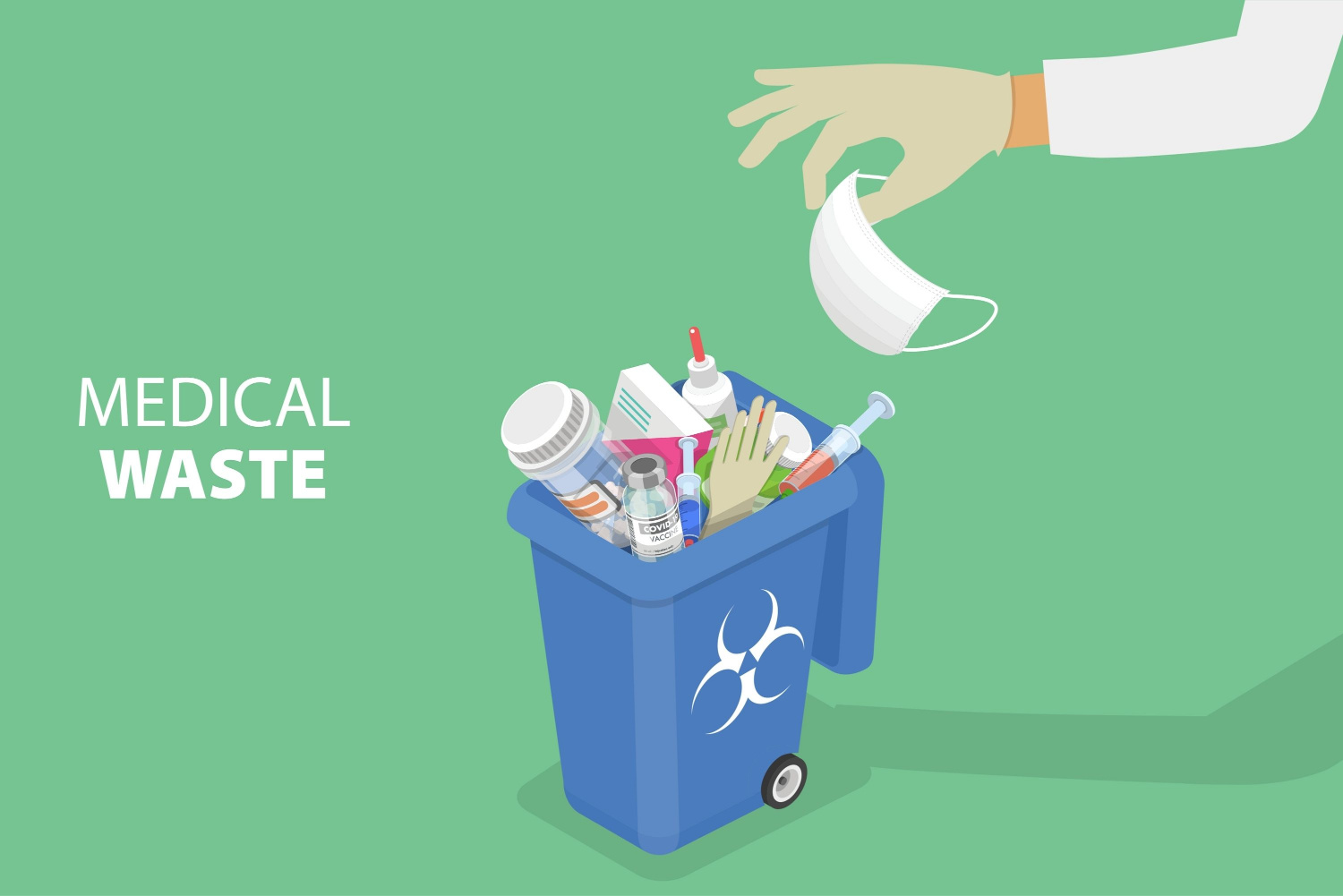Making Certain Safe Handling and Disposal of Medical Waste
Guaranteeing secure handling and disposal of clinical waste is of critical relevance in health care settings. Incorrect management of clinical waste can present considerable risks to the environment, public wellness, and health care employees. This requires adherence to rigorous guidelines and methods for its risk-free handling and disposal. In this intro, we will certainly discover the importance of proper medical waste management, the risks related to incorrect handling and disposal, in addition to the guidelines and methods that can be carried out to guarantee its secure disposal. In addition, we will certainly go over the relevance of training and education and learning for healthcare specialists in order to preserve a safe and tidy health care environment. By following these methods, we can effectively mitigate the potential hazards related to clinical waste.
Importance of Appropriate Medical Waste Administration
Correct clinical waste monitoring is of utmost value in making certain the safety and wellness of health care experts, patients, and the general public. Medical waste describes any waste generated by medical care facilities during the medical diagnosis, treatment, or immunization of pets or human beings. This waste can position significant health and wellness threats if not managed and dealt with correctly.
Among the main factors why proper medical waste monitoring is essential is to avoid the spread of transmittable diseases. Medical waste, such as made use of needles, infected dressings, and organic materials, can bring hazardous virus. If not dealt with and disposed of correctly, these microorganisms can be sent to medical care employees, patients, waste handlers, and also the public, leading to the potential break out of diseases.
Additionally, appropriate medical waste administration aids shield the setting - medical waste removal. Medical waste includes dangerous materials, consisting of chemicals, drugs, and contaminated materials. When not taken care of suitably, these materials can infect dirt, water bodies, and the air, posing a considerable danger to ecological communities and public health
Additionally, efficient clinical waste monitoring makes certain conformity with international criteria and regional policies. Governments and governing bodies have actually established methods and standards to make certain the risk-free handling, storage, transportation, and disposal of clinical waste. Sticking to these guidelines is necessary to prevent legal repercussions and preserve the track record and reliability of medical care centers.
Dangers of Improper Handling and Disposal

Patients can likewise be subjected to these transmittable diseases if medical waste is not properly disposed of. If polluted needles or various other sharps are not disposed of in designated puncture-proof containers, they may inadvertently prick clients, leading to potential infections. Moreover, if clinical waste is not set apart effectively, there is a danger of cross-contamination in between various kinds of waste, additional raising the possibilities of disease transmission.
Improper disposal of clinical waste can additionally have destructive impacts on the atmosphere and the public. If medical waste is not dealt with and thrown away correctly, it can pollute water resources, soil, and air, leading to the spread of pollutants and conditions. This can have long-term effects on environments and public health and wellness.
Standards for Safe Handling of Medical Waste
Implementing effective methods for the risk-free handling of medical waste is important in guaranteeing the protection of health care professionals, clients, and the public. These standards are critical in reducing the threats related to the handling and disposal of medical waste, such as infections, injuries, and ecological air pollution.
Most importantly, medical care centers need to establish a thorough waste management strategy that sticks to neighborhood, national, and global guidelines. This plan needs to include clear instructions on waste partition, packaging, transportation, labeling, and storage. It is important to separate different sorts of waste, such as sharps, infectious materials, drugs, and learn this here now non-hazardous waste, to stop cross-contamination and advertise secure disposal.
In addition, medical care workers must receive complete training on appropriate waste handling methods. They need to be educated on the potential dangers of clinical waste, the appropriate use of individual safety tools (PPE), and the correct procedures for taking care of, carrying, and dealing with various types of waste.
In addition, healthcare centers need to consistently keep track of and examine their waste administration methods to make certain conformity with guidelines. This includes conducting routine inspections, evaluating waste handling procedures, and offering responses and training to team members.
Efficient Techniques for Waste Disposal
To ensure the safe handling and disposal of clinical waste, it is essential to employ reliable approaches for garbage disposal. Clinical waste can present substantial threats to public wellness and the environment if not handled and thrown away appropriately. Medical care centers and waste monitoring organizations need to carry out appropriate techniques to reduce these dangers.
It entails separating various types of clinical waste based on their features. Health care facilities ought to provide clear guidelines and training to personnel members on exactly how to segregate waste correctly.

Moreover, medical care centers ought to work together with qualified waste management business to make sure correct disposal of clinical waste. These companies have the experience and equipment required to securely handle and get rid of of medical waste in conformity with policies and ideal methods.
Training and Education And Learning for Medical Care Professionals
Health care experts play an essential role in guaranteeing the risk-free handling and disposal of clinical waste with thorough training and education and learning. It is important for doctor to have a deep understanding of the potential dangers connected with clinical waste and the appropriate procedures for its administration. By receiving correct training, medical care experts can reduce the potential transmission of infectious conditions, stop ecological contamination, and secure both themselves and the basic public.

Additionally, training programs ought to highlight the use of individual protective devices (PPE) and correct hand hygiene techniques when handling clinical waste. medical waste removal. Medical care professionals ought to recognize just how to correctly get rid of and use of PPE to secure themselves from possible direct exposure to dangerous products. They need to also be educated on the value of normal handwashing and the proper usage of hand sanitizers to lessen the spread of infectious conditions
Continuing education and learning and routine updates on clinical waste management methods are crucial for health care specialists. As standards and regulations develop, it is necessary to keep doctor educated concerning any modifications in procedures and ideal practices. This will guarantee that they remain current and maintain a high standard of security in taking care of and getting rid of of medical waste.
Final Thought
In conclusion, proper handling and disposal of clinical waste is critical to make certain the safety and security of health care professionals, patients, and the setting. By sticking to these practices, we can mitigate the possible risks associated with clinical waste.
Medical waste refers to any waste created by health care facilities throughout the medical diagnosis, treatment, or booster shot of people or animals. If medical waste is not segregated properly, there is a danger of cross-contamination between different types of waste, more increasing the possibilities of illness transmission.
It is important to separate various kinds of waste, such as sharps, contagious materials, pharmaceuticals, and non-hazardous waste, to protect against cross-contamination and promote secure disposal. WasteX Medical Waste Disposal.
To ensure the secure handling and disposal of medical waste, it is essential to utilize reliable techniques for waste disposal. In addition, healthcare centers need to establish a routine waste collection and transportation timetable to prevent waste accumulation and decrease the risk of mishaps or contamination.